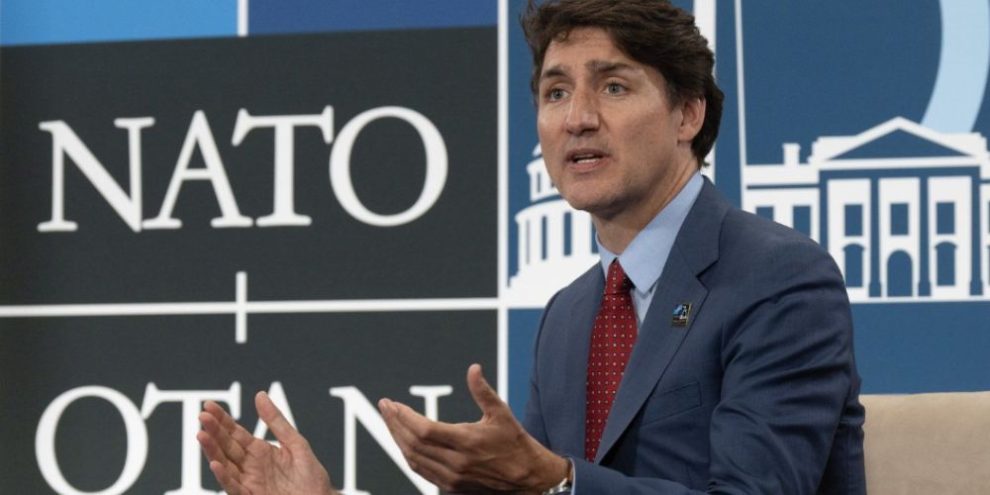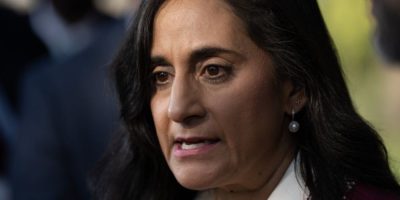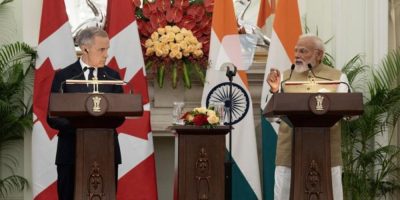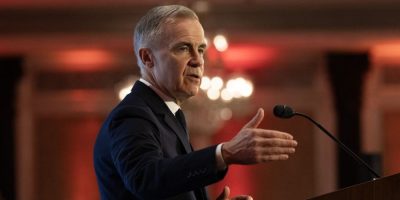
Updated July 11, 2024 @ 3:11pm
After days of pressure from NATO allies at the annual leaders' summit, Prime Minister Justin Trudeau said Thursday that Canada "fully expects" to hit the alliance's defence spending target in 2032 — but the government's newly announced timeline came with no new details to show how it will happen.
"We have shown that a responsible government steps up in a changing world and does the necessary work not just to increase defence spending, but to do it in the right way," Trudeau said at a press conference in Washington, D.C.
The 32 members of the alliance agreed last year to spend at least the equivalent of two per cent of national gross domestic product on defence. That built on a 2014 agreement by NATO countries to work toward spending two per cent.
While Canada has increased its defence spending by 57 per cent since 2014, it is still lagging behind its NATO allies.
Current spending sits near 1.37 per cent of GDP. By 2030 that's estimated to hit 1.76 per cent, according to an updated defence policy released in April.
Trudeau has been pushed hard by allies in Washington this week to produce a plan showing how Canada will get to two per cent. It came into the summit as the lone NATO member without such a plan.
The issue has taken on particular importance with Donald Trump running for re-election in the U.S. The former president has been vocal about so-called freeloading allies who aren't spending enough, saying at one point that he would encourage Russia to do whatever it wants to those countries.
Trudeau began his week in Washington trying to deflect the criticism. In a Tuesday speech, the prime minister said the Liberal government has been following through on promises to drastically increase the defence budget since it came into power, when spending was close to one per cent of GDP.
He repeatedly touched on that point again Thursday, citing spending pledges that amount to $175 billion in the last eight years.
Canada's defence budget is estimated at $29.9 billion for this year. Only the U.S., United Kingdom, France, Germany, Italy, Poland and Turkey spend more in terms of real dollars.
Nonetheless, 23 of the 32 NATO allies are expected to meet the two per cent target this year.
The joint statement allies released on Wednesday at the leaders' summit reaffirms the pledge to spend at least two per cent. It also notes that "in many cases, expenditure beyond two per cent of GDP will be needed in order to remedy existing shortfalls and meet the requirements across all domains arising from a more contested security order."
Some experts have said that Ottawa should have shared its plan ahead of the three-day summit so NATO allies would know Canada is serious.
"Tell them exactly what you are going to do," Fen Hampson, a professor of international affairs at Carleton University in Ottawa, said Wednesday.
Trudeau gave no details on Thursday about how much money will be allocated to national defence to meet the target or how it will fit within the budget.
"The situation, the global context, requires us to be stepping up on defence," he said.
He also returned to a familiar talking point of his government: that the NATO spending formula is arbitrary and doesn't provide a full picture of a country's contributions to the alliance.
"We continually step up and punch above our weight, something that isn't always reflected in the crass, mathematical calculation that some people turn to very quickly, which is why we've always questioned the two per cent as the be all and end all of evaluating contributions to NATO," he said.
Canada could, Trudeau suggested, give Coast Guard members handguns and count that department's budget toward defence spending. "Would that make Canada any safer? Would that make Canadians better off? Would that make us better able to counter the malign influence of Russia?"
He went on: "Our approach on defence is a profoundly serious one that looks at what capabilities we need, what is needed and what is good for Canadians, where we can best contribute to the world and how to get there in a responsible way as a government."
In a statement, Defence Minister Bill Blair said the 2032 timeline is "in line with commitments by several allies who have made comparable pledges."
Blair's office noted that the updated defence policy includes a list of 10 capabilities Canada would explore options for, which had no cost estimates.
"To reach the two per cent target by 2032, Canada will invest in the right mix of these additional capabilities outlined in (the policy) on the right timeline," the statement said. There were no further details.
Trudeau and Blair announced this week that Canada is beginning the procurement process on one of those capabilities, with an aim to buy up to 12 conventionally powered submarines that can operate under the ice.
Blair has long cited the new submarine fleet as a key component to meeting the spending target, but the government has not provided any estimates for how much the subs will cost or how long they will take to build.
Criticism from the official Opposition in Ottawa was immediate, with Conservative defence critic James Bezan accusing Trudeau of producing the date to "save face" at the summit.
"If this commitment to get to two per cent was serious, it would have been included in (the April defence policy update)," Bezan said in a statement.
The statement did not feature a pledge that a Conservative government would meet the target, but said the party would "make real and credible efforts to work towards meeting our NATO spending commitments."
The announcement was positively received by David Cohen, the U.S. ambassador to Canada.
"The United States, Canada and our NATO allies need 21st century defence and security to meet 21st century challenges, and this plan marks an important positive step toward meeting our shared goals," Cohen said in a statement.
This report by The Canadian Press was first published July 11, 2024.
— With files from Sarah Ritchie in Ottawa.





